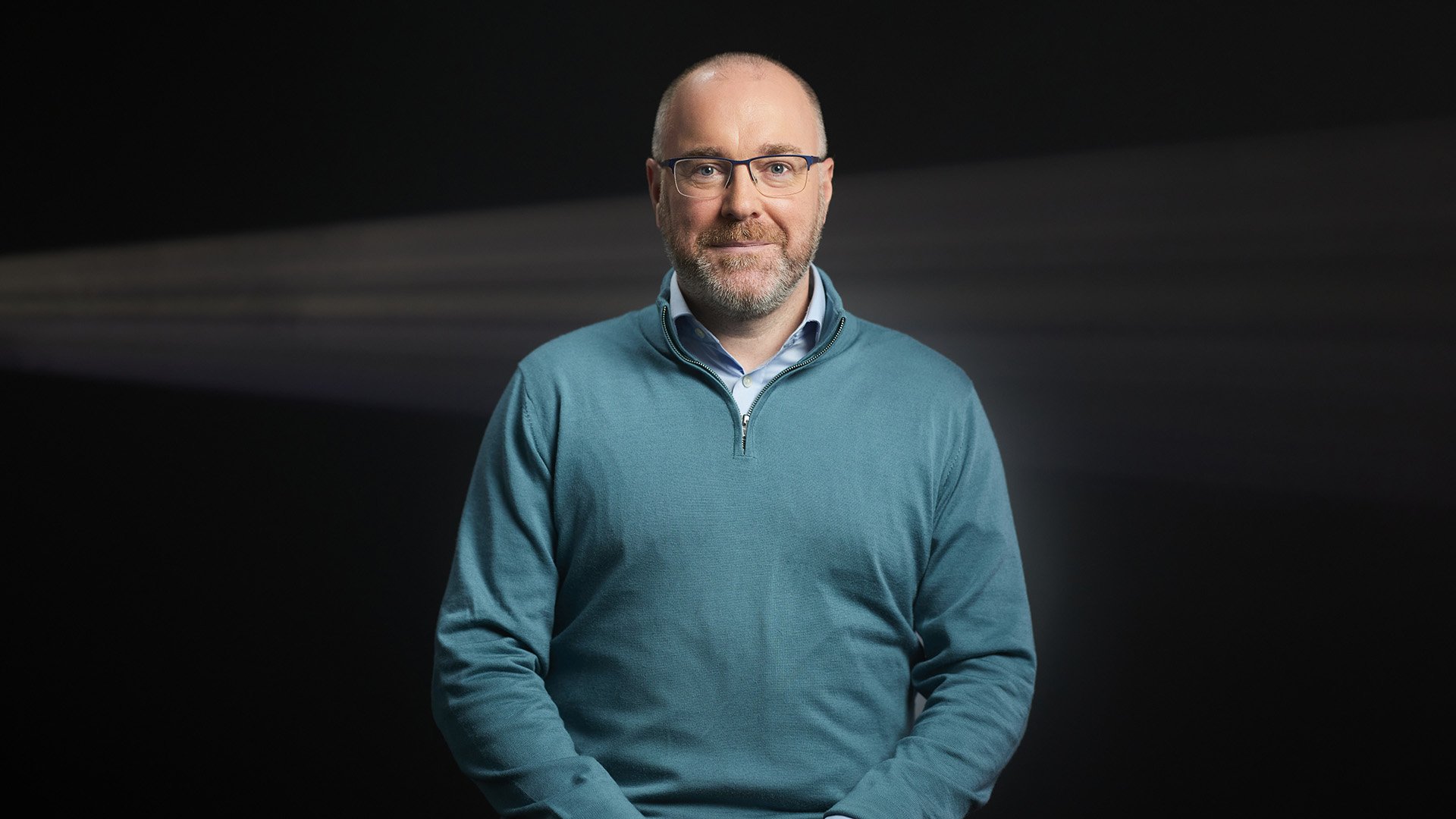Overview
Investment manager Iain Campbell and investment specialist Richard Gall give an update on the ACWI ex US All Cap, EAFE Plus All Cap and Developed EAFE All Cap strategies covering Q4 2024.
As with any investment, your capital is at risk. Past performance is not a guide to future returns.
Richard Gall (RG): Hello everyone. Thank you for joining us for the latest International All Cap Strategy update. My name is Richard Gall. I'm a strategy specialist on International All Cap and I'm joined by Iain Campbell who is Head of International All-Cap and a partner at Baillie Gifford.
So Iain, maybe just thinking about the last year and more specifically the last quarter, there's been a lot going on. What's your take on that? What's your perspective?
Iain Campbell (IC): Yeah. Well, in terms of the areas of the portfolio that have contributed to performance, I'd call out our emerging market region and our UK region as contributors. That was largely down to stock selection. So, in emerging markets, TSMC delivered very strong performance in the fourth quarter. It upgraded its guidance during that quarter that was largely driven by growing demand for AI-related chips from companies like NVIDIA. But it also has continued to extend its lead over its competitors and sees very high levels of capacity utilization.
In the UK, I'd call out Games Workshop as being a standout performer. It also upgraded its guidance during the fourth quarter. Games Workshop is a toy and hobby content business and what drove that increase in guidance was better-than-expected licensing revenue from its video game partner.
Beyond those two regions, we saw strong performance from our holding in the Singaporean bank UOB. That was largely because it announced that it was going to use some of its excess capital to do share buybacks. And then beyond that, MakeMyTrip, which is an online Indian travel agent, saw continued strong performance. it announced that its most recent quarter of profits had grown at nearly 50 per cent, so strong fundamental performance from that business.
RG: Okay. Maybe just in the interest of balance, which companies disappointed over the period? And maybe more importantly, has any of that changed your thinking on them?
IC: Yes, well there was a cluster of underperformers in Japan, so Shiseido, the cosmetics company, Unicharm, personal care products and Shimano in bicycle components were all detractors in the fourth quarter. These are all consumer-facing companies and it was really weakness in the Asian consumer, and in most cases the Chinese consumer, which remains under pressure, which caused some cyclical weaknesses for their results.
Beyond that, Atlas Copco, which is a large holding for us, a long-term holding, also announced slightly weak results in the fourth quarter. They talked about there being a level of hesitancy in orders, which echoes some of the comments we are hearing from other companies that sell into European and Asian industrial businesses.
RG: Okay. A couple of minutes ago you mentioned internet platform businesses and that seems to be an area of strength in the portfolio. What's been driving that?
IC: Yes, it's been a really encouraging collection of names over the course of 2024. And that's a very different story from a year ago. So a year ago these companies were out of favour, had sold off in general. But what really changed in 2024 is that the best of those type of businesses recognised that in a higher rate environment they had to demonstrate their ability to generate profits and to grow those profits. And so the best of those companies just pulled that profit lever a bit more firmly.
A good example would be Recruit, which is a Japanese company that owns Indeed, which is the world's leading online jobs marketplace. It's been investing heavily in that business since it bought it in 2012, but in more recent years has started to harvest some of that strength in the competitive position of the business and that's translating into strong profit growth.
RG: Okay. Maybe just turning to Japan, which has hurt performance over the past quarter and the past year. Can you give us some colour on what's been happening there? And maybe China's another area that's been slightly weaker. Is there any read-across between those two areas, or am I being overly simplistic?
IC: Yeah, I think there is. I mean, first of all, we can't blame it all on the macro. There have been some stock-specific issues for some of our Japanese holdings. But you are right to identify China as an area of weakness. The Chinese consumer continues to be under a lot of pressure. It's had a slow emergence from what had been stringent Covid lockdowns and the Chinese property market continues to have problems. So companies that sell into that Chinese consumer have had difficulties and that includes a few of our Japanese holdings.
But there is another thing going on in Japan, which is that over the course of 2024 and into the final quarter, growth companies have lagged the market and value companies have led the market. And the reasons behind this are that the Japanese currency continues to be very weak and that's been a sort of an oxygen infusion for the weaker Japanese companies. And then secondly, there has been this trend towards improving corporate governance. And again, the businesses and the shares that have benefited the most from that have been those with lower starting standards of corporate governance. So as investors in higher-quality growth businesses, the sorts of companies we hold have generally not been leaders in the market.
RG: Let's talk about trading a little bit. Are there any of the new purchases that you would highlight that stand out to you and how do you see the future for those businesses?
IC: Yes. Well, let me give a couple of examples. Firstly, we bought a new holding in a company called Chugai. Chugai is a Japanese biopharma company. What matters for businesses like this in the long term is the effectiveness of their innovation machine. And Chugai, for cultural and structural reasons, has a track record of highly effective innovation.
Looking at it now, it's also got a number of what we see as shots on goal. So it's got a potential shot on goal in the GLP-1 weight loss space. It's got a number of candidates in next-generation antibodies, what they call bispecific antibodies. And then towards the end of this decade, there's a number of peptide-based drugs that are in that pipeline. So we think that combination of a very effective innovation machine and a number of shots on goal makes Chugai a very exciting company to back at this stage.
The other company I would highlight would be Total Energies, which is a European energy company. What we like there is it's got a leading market share in the LNG market. LNG is an area where scale and market share really matter. So we think that gives it a strong edge. And we also think that Total has a track record of allocating capital very sensibly. And at the moment, it's steadily allocating capital into power generation. For these sorts of companies, in the short term, it's the oil price that drives the share price. But in the long term, it's where they allocate capital. And we think that Total has that track record of being best-in-class as a capital allocator.
RG: What do you think 2025 has in store for us? What's your outlook?
IC: Well, I think before we go on to that, we need to accept that performance for the International All Cap Strategy has not been what we'd hoped in 2024 and in recent years. We had hoped we would see something of a turnaround in performance and we did see a stabilisation in the second half and we are seeing good fundamental progress in the companies we invest in. But that's not yet been enough to deliver outperformance for the portfolio as a whole. But sitting here today looking at the portfolio and the opportunity set we have, I'm very optimistic. The portfolio has exposures to a number of strong secular trends. For example, it's exposed to AI, to the semiconductor industry, to the application of technology in industry, to the emergence of the middle class in some fast-growing economies. So for these reasons, looking at the portfolio and the opportunity set, we're very optimistic.
RG: Iain Campbell, thank you very much for joining us, and thank you very much for joining us this morning. Should you have any questions at all on our thoughts and what we've spoken about, please just push those back to your regular Baillie Gifford client contacts, and thank you again.
International All Cap (including ACWI ex US All Cap, EAFE Plus All Cap and Developed EAFE All Cap strategies)
Annual past performance to 31 December each year (net%)
| 2020 | 2021 | 2022 | 2023 | 2024 | |
|
ACWI ex US All Cap Composite |
33.2 |
3.2 |
-32.0 |
10.4 |
2.9 |
|
MSCI ACWI ex US Index |
11.1 |
8.3 |
-15.6 |
16.2 |
6.1 |
|
EAFE Plus All Cap Composite |
28.2 |
3.8 |
-30.9 |
9.8 |
1.2 |
|
Developed EAFE All Cap Composite |
27.3 |
7.4 |
-32.2 |
10.1 |
-0.6 |
|
MSCI EAFE Index |
8.3 |
11.8 |
-14.0 |
18.9 |
4.3 |
Annualised returns to 31 December 2024 (net%)
| 1 year | 5 years | 10 years | |
|
ACWI ex US All Cap Composite |
2.9 |
1.2 |
4.7 |
|
MSCI ACWI ex US Index |
6.1 |
4.6 |
5.3 |
|
EAFE Plus All Cap Composite |
1.2 |
0.4 |
4.2 |
|
Developed EAFE All Cap Composite |
-0.6 |
0.3 |
4.2 |
|
MSCI EAFE Index |
4.3 |
5.2 |
5.7 |
The International All Cap Strategy comprises three distinct variants. Overall, the variants are broadly similar, with the key difference being the degree of exposure to emerging markets listed holdings.
Source: Revolution, MSCI. US dollars. Returns have been calculated by reducing the gross return by the highest annual management fee for the composite. 1 year figures are not annualised.
Past performance is not a guide to future returns.
Legal notice: MSCI makes no express or implied warranties or representations and shall have no liability whatsoever with respect to any MSCI data contained herein. The MSCI data may not be further redistributed or used as a basis for other indexes or any securities or financial products. This report is not approved, endorsed, reviewed or produced by MSCI. None of the MSCI data is intended to constitute investment advice or a recommendation to make (or refrain from making) any kind of investment decision and may not be relied on as such.
Risk factors
This communication was produced and approved in January 2025 and has not been updated subsequently. It represents views held at the time and may not reflect current thinking.
The views expressed should not be considered as advice or a recommendation to buy, sell or hold a particular investment. They reflect opinion and should not be taken as statements of fact nor should any reliance be placed on them when making investment decisions.
This communication contains information on investments which does not constitute independent research. Accordingly, it is not subject to the protections afforded to independent research, but is classified as advertising under Art 68 of the Financial Services Act (‘FinSA’) and Baillie Gifford and its staff may have dealt in the investments concerned.
All information is sourced from Baillie Gifford & Co and is current unless otherwise stated.
The images used in this communication are for illustrative purposes only.
Financial Intermediaries
This communication is suitable for use of financial intermediaries. Financial intermediaries are solely responsible for any further distribution and Baillie Gifford takes no responsibility for the reliance on this document by any other person who did not receive this document directly from Baillie Gifford.
Related insights

Climate scenarios: preparing for uncertainty
How scenario analysis and climate adaptation can unlock exciting investment opportunities in resilient companies.February 2025
Video|46 minutes
Profile of an investigative researcher
Explore how Hatty Oliver's unique research at Baillie Gifford shapes investor thinking and informs income growth strategies.February 2025
Video|6 minutes
Discovery: our philosophy
Investment manager, Douglas Brodie, discusses the Baillie Gifford Discovery Strategies.February 2025
Video|3 minutes
